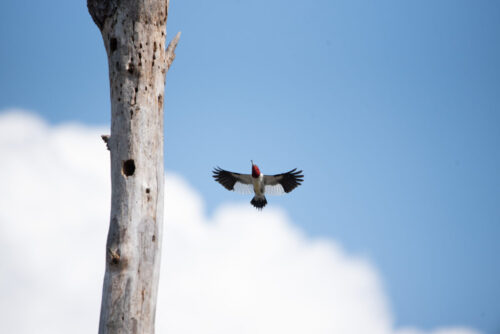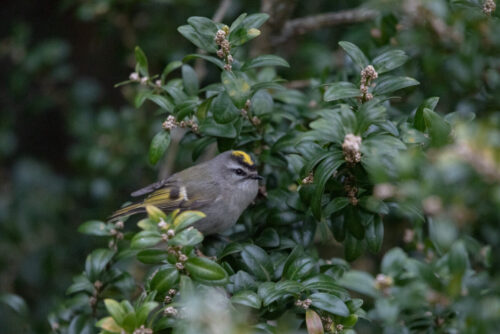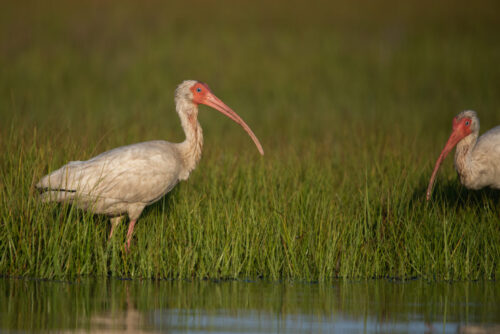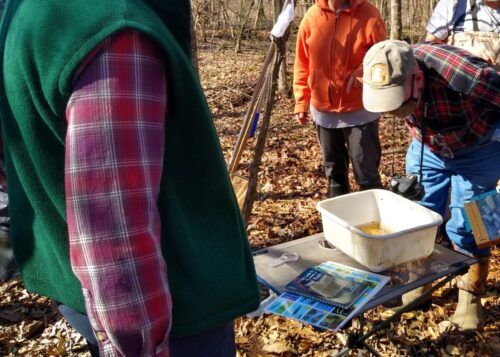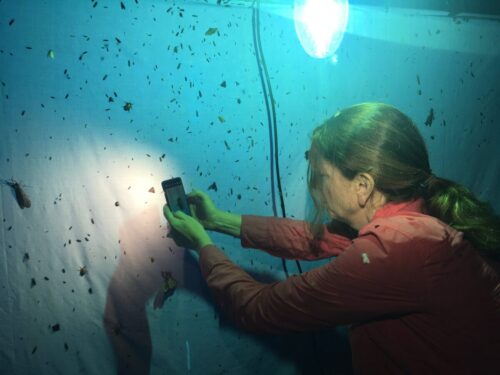Citizen Science? Yes, You Can!
March 17, 2023 8:52 am
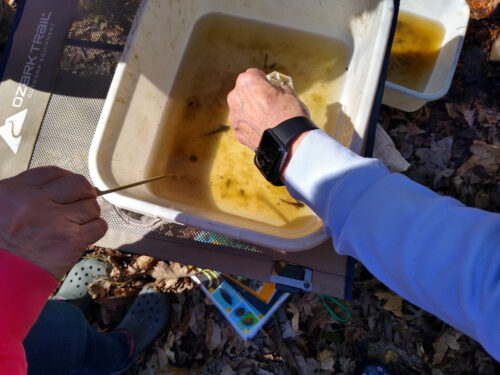
By Ellen Powell, DOF Conservation Education Coordinator and Cory Swift-Turner, DOF Communications Specialist
A middle school class documents the spring’s first dogwood and redbud blooms in their schoolyard.
A family records the birds that visit their feeders in the winter.
A retiree places wing tags on monarch butterflies before migration.
A hunter reports sightings of sick deer to a wildlife agency.
What do all of these scenarios have in common? They are all examples of “citizen science” at work.
Citizen science occurs when regular, non-scientist folks volunteer to collect data, complete research projects, or report observations to professional scientific entities. The world around us is full of important questions, and there aren’t enough scientists to answer all of them. Citizen science puts more eyes, ears and hands in more places, greatly increasing our collective knowledge base. Incidentally, the word citizen is not used here in the legal sense, but in the broader definition of someone who inhabits the planet. Anyone can be a citizen scientist! All you need is a little time, a love of nature and a willingness to learn and share.
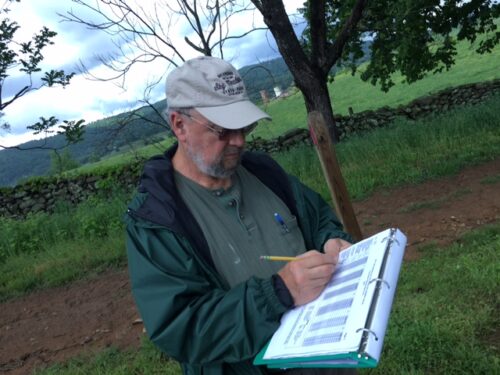
A volunteer records bluebird nesting data at Sky Meadows State Park. Photo credit: Shenandoah Master Naturalists
Simply keeping records for yourself doesn’t make for good citizen science but sharing your findings through an organized project does. For every type of natural history observation you make, there’s probably someone – from a university researcher to a local nonprofit organization – who would love to have your data.
DOF Communications Specialist Cory Swift-Turner isn’t a scientist by trade, but he’s a regular participant in citizen science. He had this to say about one of his recent experiences:
As an avid birder, I try to participate in the Great Backyard Bird Count (GBBC) each year. For the 2023 GBBC, I drove down to Wilmington, North Carolina to visit a birding friend and hopefully see some cool birds!
We started by counting all the birds visiting my friend’s backyard feeders as we ate breakfast. Twenty-three species came by to join us, including a female purple finch and some brown-headed nuthatches. Later we visited several parks in Wilmington. The first was a large garden park, where we saw 43 species, including red-headed woodpecker, golden-crowned kinglet and orange-crowned warbler. Along a creek that was only a few miles from the ocean, we saw white ibis, double-crested cormorant, black-crowned night heron and anhinga. A short drive later, at a second park with a large lake, we saw eastern towhee, Wilson’s warbler and belted kingfisher. We wrapped up the day with a visit to Wrightsville beach, where we saw a host of ocean birds, including common loons, gulls, razorbills, pelicans, terns and grebes.
- Redheaded woodpecker
- Golden-crowned kinglet
- White ibis
My total count during this visit to North Carolina was 82 species, including four “lifer” species. “Lifers” are birds I have never seen before, and these are always particularly exciting.
For me, birdwatching is a great way to spend time outdoors, unwind, and appreciate the incredible wildlife we have. I report my sightings at ebird, and my data helps ornithologists map bird populations, migration and behavior. Participating can be as simple as watching birds for 15 minutes at your backyard feeder.
Here in Virginia, citizen science is a cornerstone of the Master Naturalist program, of which DOF is a sponsoring agency. Master Naturalist volunteers might monitor the locations of invasive spotted lanternflies, count egg masses of spotted salamanders, or perform many more research activities that don’t involve spots! But you don’t have to be a member of a group to be a citizen scientist. You’ve probably heard about some of the more prominent citizen science programs, maybe without knowing that you could be a part of them. A few popular ones include iNaturalist, Save Our Streams, Nature’s Notebook, and Monarch Watch.
- Sampling a vernal pool at Cumberland State Forest
- Studying moths at Powhatan State Park; photo credit: Sarah Reilly, James River Master Naturalists
Not sure you have the knowledge needed to be a citizen scientist? Fear not – there are tools to help you. In addition to the training provided by some organizations, there are amazing apps that can go anywhere your phone can. For instance, Cory recommends Cornell University’s free Merlin Bird ID app, which helps you identify birds from pictures and sounds. Citizen science is fun for the whole family – maybe even addicting! It’s a habit you can feel good about, as you help to answer questions, solve problems, and add to our knowledge of the natural world.
Tags: Partnerships, Volunteer

